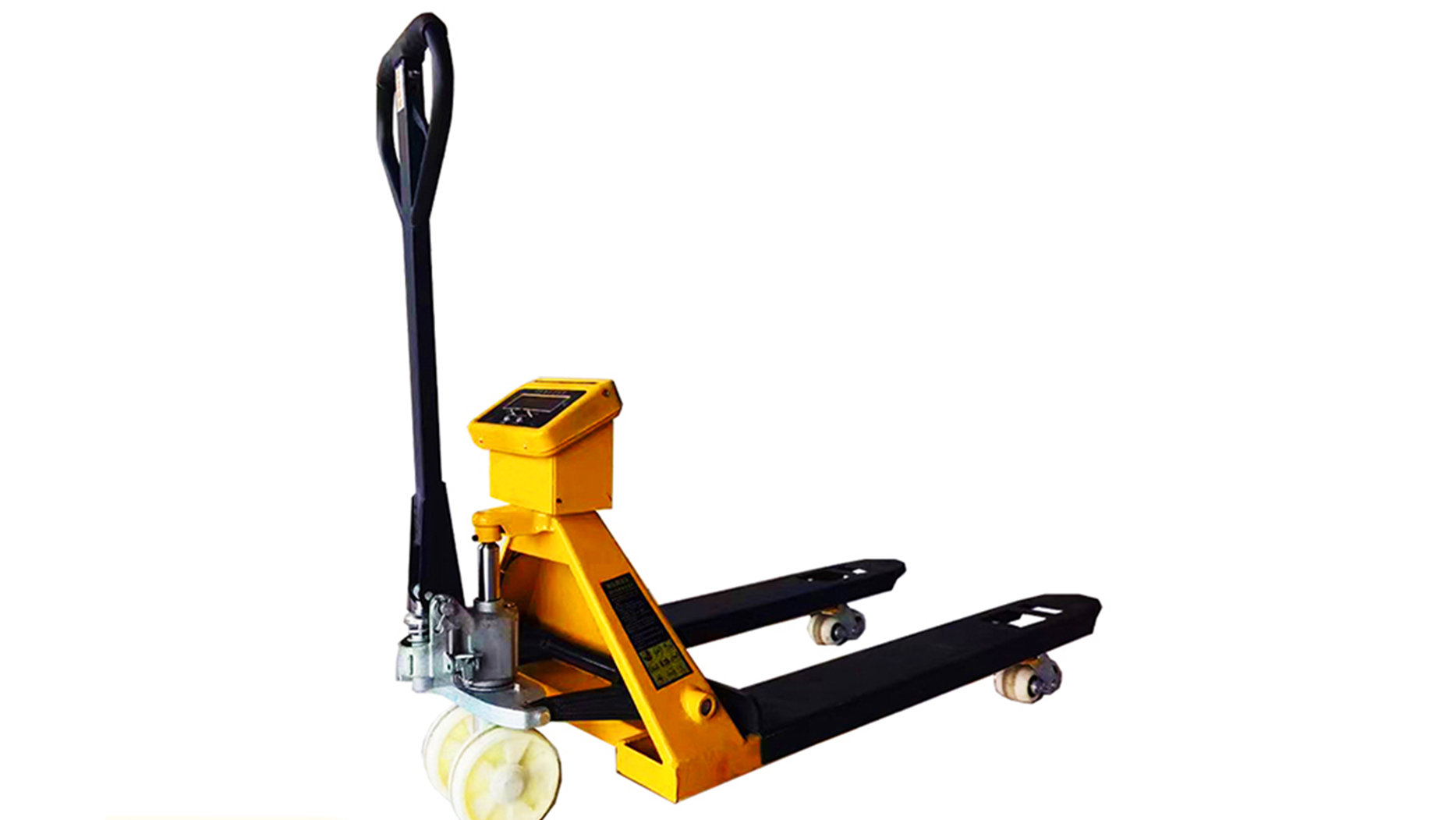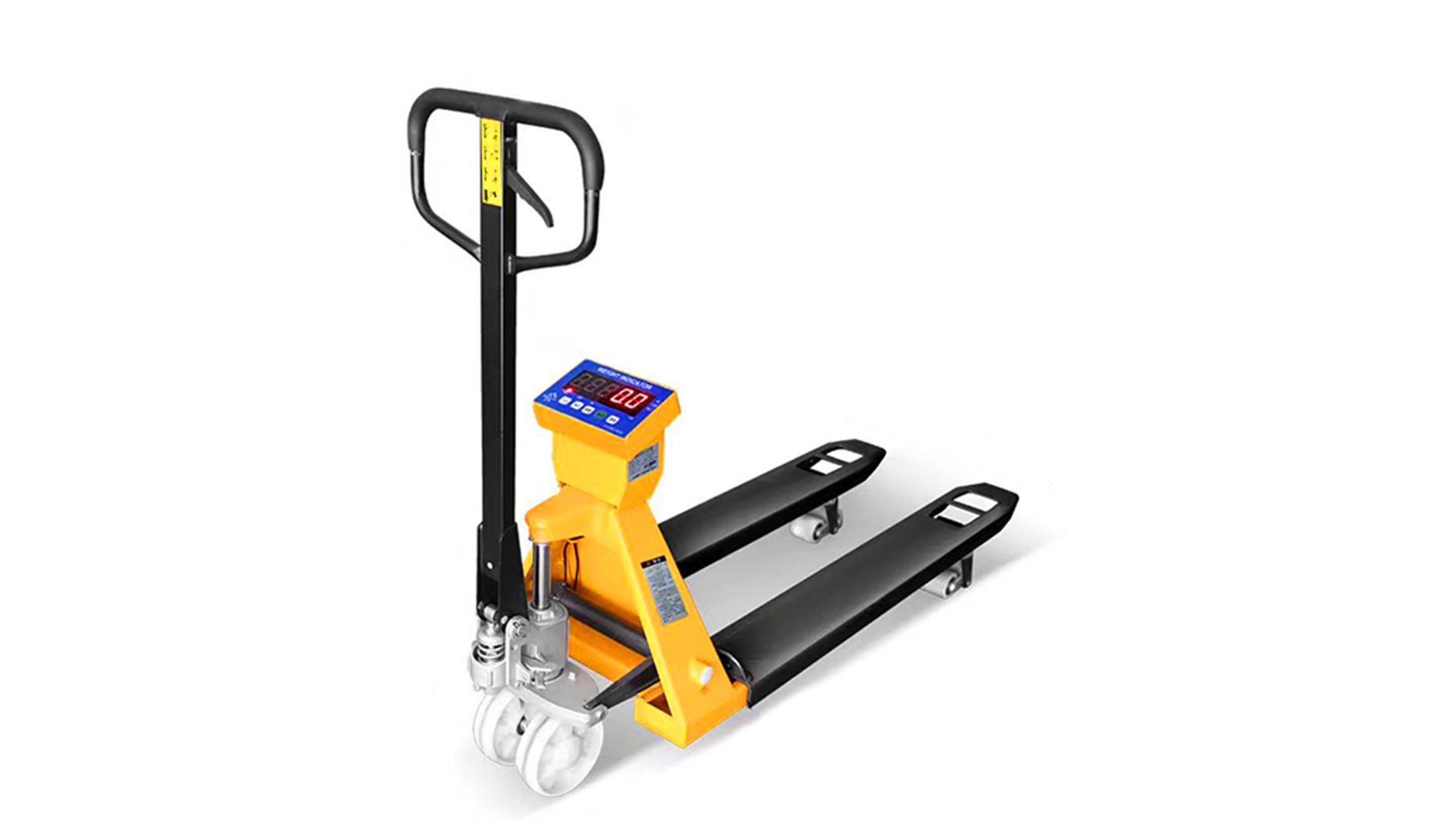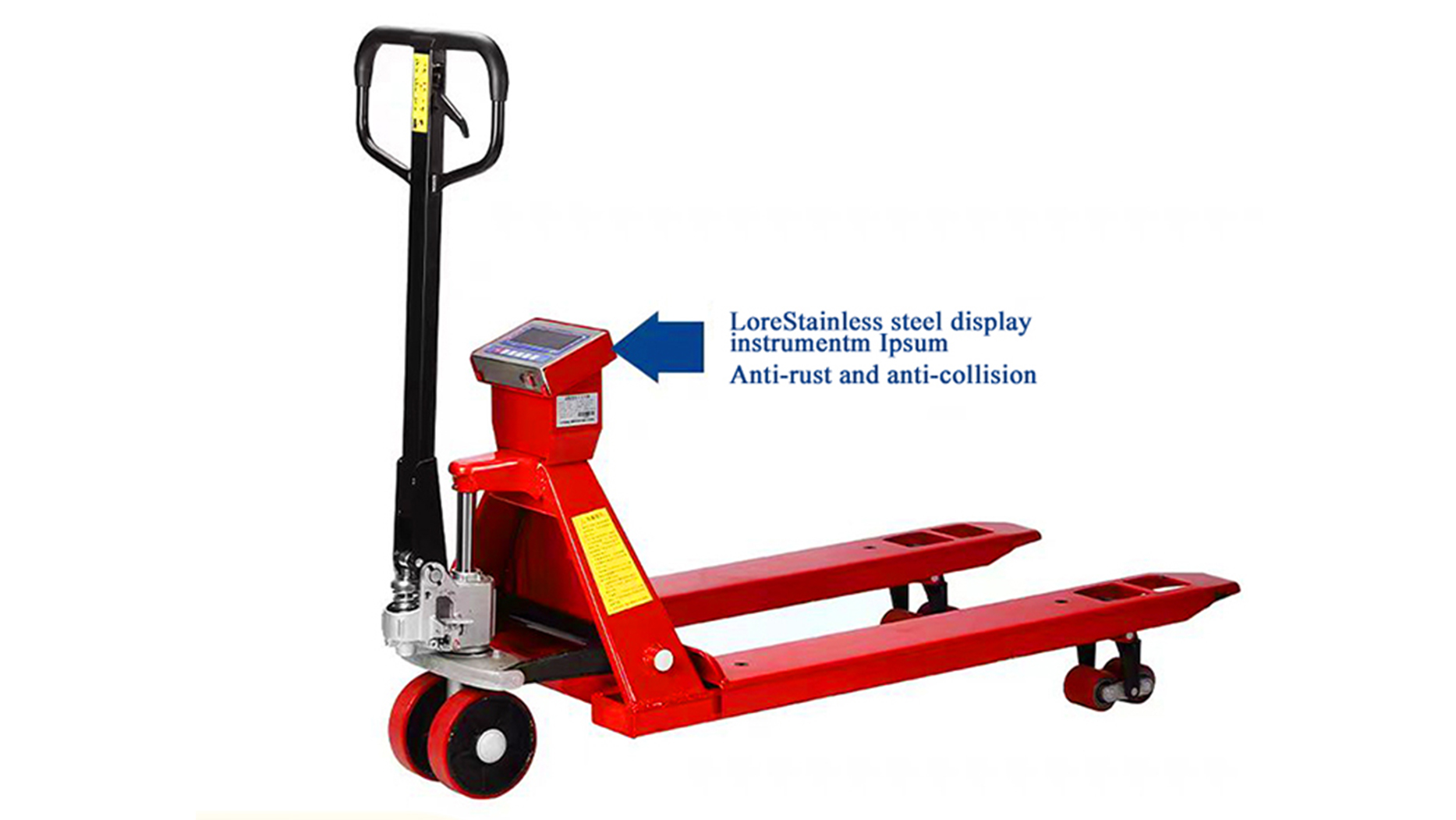The price of a 2-ton pallet truck is not a fixed figure. It varies significantly based on several crucial factors, including the type of pallet truck (manual, electric, semi-electric), the manufacturer, specific features, material quality, and whether it's new or used. Understanding these variables is key to making an informed purchasing decision that aligns with your operational needs and budget.
This comprehensive guide will break down the pricing tiers for different types of 2-ton pallet trucks, explore the factors that influence their cost, and offer insights to help you find the best value for your investment.
Types of 2-Ton Pallet Trucks and Their Price Ranges
The 2-ton capacity is a common sweet spot for pallet trucks, offered across various power types:
1. Manual 2-Ton Pallet Trucks (Hand Pallet Jacks)
These are the most fundamental and cost-effective option, relying entirely on human power for lifting and moving.
Average Price Range: $300 - $800
Entry-Level/Economy Models: You can find basic, reliable 2-ton manual pallet jacks from $300 to $500. These are typically standard steel construction with polyurethane or nylon wheels, suitable for light to moderate daily use.
Mid-Range/Heavy-Duty Models: From $500 to $800, you'll find more robust models with reinforced frames, higher-quality hydraulic pumps (e.g., German seals for better leak resistance), ergonomic handles, quick-lift features, or specialized wheel materials (like rubber for noise reduction or specific floor types).
Key Characteristics:
Pros: Lowest cost, zero fuel/electricity needed, minimal maintenance, simple operation, compact size.
Cons: Requires significant operator effort, slower for long distances, higher risk of operator fatigue and injury with frequent use or heavy loads.
Best For: Small warehouses, infrequent use, short distances, backup equipment.

2. Semi-Electric 2-Ton Pallet Trucks
These models offer powered drive (forward and reverse) but still rely on manual pumping for lifting. They bridge the gap between manual and full-electric models.
Average Price Range: $1,000 - $2,500
Prices can vary depending on battery type (lead-acid vs. sealed gel or lithium-ion) and motor power.
Key Characteristics:
Pros: Reduces operator fatigue for movement over longer distances, more efficient than manual for medium distances, more affordable than full-electric.
Cons: Still requires manual effort for lifting, not as fast or powerful as full-electric.
Best For: Medium-sized warehouses, operations with moderate travel distances but less frequent heavy lifting, budget-conscious buyers needing a step up from manual.
3. Full-Electric 2-Ton Pallet Trucks (Electric Walkie Pallet Jacks)
These are fully powered for both drive and lift, significantly reducing operator effort and increasing productivity.
Average Price Range: $2,000 - $5,000
Standard Models: You can find reliable 2-ton electric walkie pallet jacks starting around $2,000 to $3,500. These typically come with lead-acid or gel batteries.
Premium Models & Lithium-Ion: Prices can go up to $5,000 or more for models from top-tier brands, those featuring advanced lithium-ion batteries (offering faster charging, opportunity charging, longer lifespan, and no maintenance), enhanced ergonomics, or integrated telematics.
Key Characteristics:
Pros: Dramatically reduces operator fatigue, increases productivity, faster travel, precise control, often more durable for high-volume use.
Cons: Higher initial cost, requires charging infrastructure, battery maintenance (for lead-acid), heavier.
Best For: Medium to large warehouses, high-volume operations, frequent long-distance travel, reducing operator strain, improving overall efficiency.
4. Specialized 2-Ton Pallet Trucks
Beyond the standard designs, specialized 2-ton pallet trucks cater to specific environmental or operational needs, which significantly impacts their price.
High-Lift Scissor Pallet Jacks (2-Ton):
Price Range: $800 - $2,500 (manual hydraulic); $2,500 - $5,000+ (semi-electric or electric lift)
Features: Lift loads to ergonomic working heights (up to 30-35 inches), acting as a lift table and pallet truck.
All-Terrain Pallet Jacks (2-Ton):
Price Range: $1,500 - $5,000+
Features: Equipped with pneumatic tires and robust frames to navigate uneven surfaces, gravel, construction sites, or outdoor environments.
Stainless Steel/Galvanized Pallet Jacks (2-Ton):
Price Range: $2,000 - $5,000+ (for stainless steel); $800 - $1,500 (for galvanized)
Features: Built for corrosive environments, wash-down applications, food processing, or pharmaceutical industries where hygiene and corrosion resistance are critical.
Pallet Jacks with Integrated Scales (2-Ton):
Price Range: $1,500 - $4,000+
Features: Combine weighing functionality with pallet movement, allowing for accurate load measurements on the go.
Low Profile Pallet Jacks (2-Ton):
Price Range: $700 - $1,500+
Features: Designed with extremely low fork heights to fit under specialized pallets or skids.
Factors Influencing the Price of a 2-Ton Pallet Truck
Beyond the basic type, several other elements play a crucial role in determining the final price:
Manufacturer & Brand Reputation:
Well-established brands (e.g., Toyota, Crown, Raymond, Hyster, Yale, Jungheinrich, Clark, Komatsu, Noblelift, Hangcha) often command higher prices due to their reputation for quality, reliability, advanced technology, and extensive service networks.
Lesser-known or economy brands might offer lower prices but could potentially come with trade-offs in durability, available features, or long-term support.
Material Quality & Build Construction:
The grade of steel, welding quality, hydraulic pump seals (e.g., German seals are often cited for better durability), and wheel materials (polyurethane, nylon, rubber, steel) all impact the lifespan and performance, thus influencing the price.
Reinforced frames or specialized coatings for specific environments (e.g., powder coating, galvanized, stainless steel) will increase cost.
Battery Technology (for Electric & Semi-Electric):
Lead-Acid/Gel Batteries: Generally standard and more affordable upfront.
Lithium-Ion Batteries: Command a higher premium but offer significant long-term savings through faster charging, opportunity charging, longer lifespan (often 3x that of lead-acid), consistent power output, and zero maintenance. This can add $500 to $2,000+ to the initial cost.

Fork Dimensions & Configurations:
Standard fork lengths (e.g., 48 inches) and widths are most common.
Longer forks, shorter forks, wider or narrower fork spreads, or adjustable forks for non-standard pallets can increase the price.
Fork designs like "forks for open bottom pallets" vs. "scissor lift" designs.
Wheel Type:
Polyurethane (PU): Common, durable, good for smooth concrete floors, quieter than nylon.
Nylon: Harder, ideal for abrasive surfaces, lower rolling resistance, but can be noisier.
Rubber: Softer, good for uneven surfaces, quieter, offers better traction, but less durable than PU or Nylon.
Pneumatic: Essential for rough terrain, adds significant cost.
Additional Features & Technology:
Quick-Lift Pumps: Reduces the number of strokes to lift a load.
Ergonomic Handles: More comfortable grips, multi-function controls.
Integrated Scales: Adds weighing capability.
Brakes: Manual or foot brakes for added safety on inclines.
Cold Storage Package: Special oils and components for low-temperature environments.
Telematics Integration: For fleet management, usage tracking, and maintenance alerts (more common on full-electric models).
AC Drive Motors (Electric): More efficient and lower maintenance than DC motors, increasing the price.
New vs. Used vs. Refurbished:
New: Offers the latest technology, full warranty, and often customization options. Highest upfront cost.
Used: Can be significantly cheaper (25-50% less) depending on condition, age, and hours. Best for lower usage or budget constraints, but might have shorter warranties or higher long-term maintenance.
Refurbished: Often sold by dealers, these units have been inspected, repaired, and sometimes repainted to near-new condition, offering a balance of lower cost and reliability with a limited warranty.

Where to Find Pricing & Purchase Your 2-Ton Pallet Truck
Authorized Dealerships: For new models, comprehensive support, financing, and service. This is ideal for ensuring quality and long-term reliability.
Online Material Handling Equipment Retailers: Websites specializing in warehouse equipment often have a wide selection and competitive pricing for both new and sometimes used units.
Direct from Manufacturers: Some manufacturers offer direct sales or have online configurators, though most sales will go through their dealer network.
Used Equipment Marketplaces & Auctions: For potentially lower prices, but require more due diligence on condition and history.
Big Box Stores / Industrial Suppliers: For basic manual pallet jacks, stores like Home Depot Pro, Lowe's Pro, Grainger, or Global Industrial offer options.
Calculating the Total Cost of Ownership (TCO)
While the initial purchase price is important, consider the Total Cost of Ownership, especially for electric models:
Initial Purchase Price: The sticker price.
Energy Costs: Electricity for charging electric models.
Maintenance & Parts: Routine servicing, wear-and-tear parts (wheels, hydraulic seals).
Battery Replacement (Electric): A significant long-term cost for lead-acid batteries (typically every 3-5 years). Lithium-ion batteries last much longer but have a higher upfront cost.
Downtime Costs: Lost productivity if the pallet truck is out of service for repairs.
Operator Fatigue/Safety: Harder to quantify, but manual pallet jacks can lead to higher injury rates or reduced productivity over time.
Conclusion: Investing Wisely in Your 2-Ton Pallet Truck
The question "What is the price of a 2-ton pallet truck?" reveals a spectrum of options, each designed to meet varying operational demands and budget constraints. From the humble manual hand jack at a few hundred dollars to advanced electric models or specialized units costing thousands, the right choice hinges on a careful evaluation of your specific needs.
Don't just chase the lowest price. Consider the frequency of use, the distances goods need to travel, the work environment, the importance of operator comfort and safety, and the long-term cost of ownership. Investing in the right 2-ton pallet truck—whether it's a basic manual model or a feature-rich electric one—will significantly enhance your material handling efficiency, reduce operational strain, and contribute to a more productive and safer workplace.
Post time:Jun.03.2025
